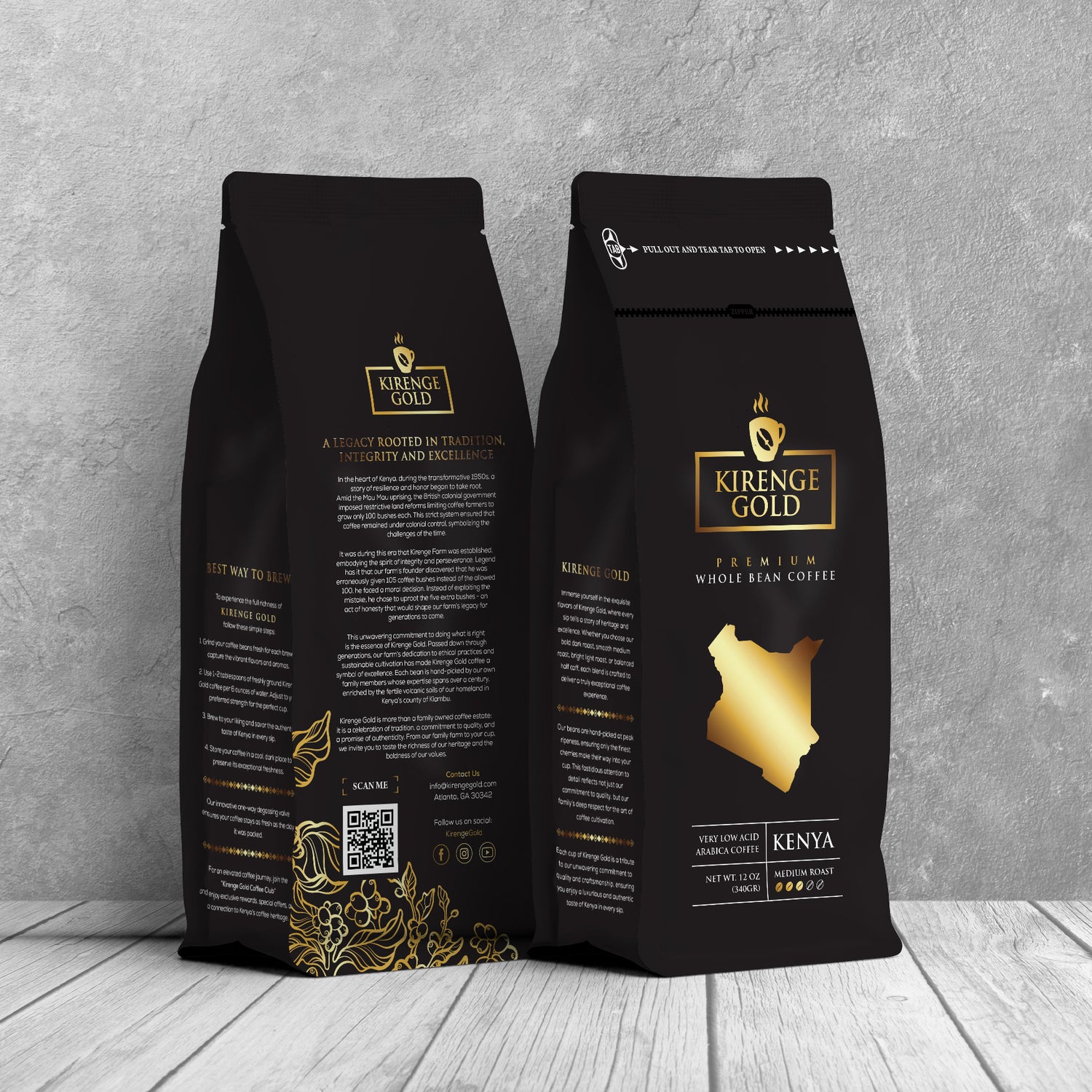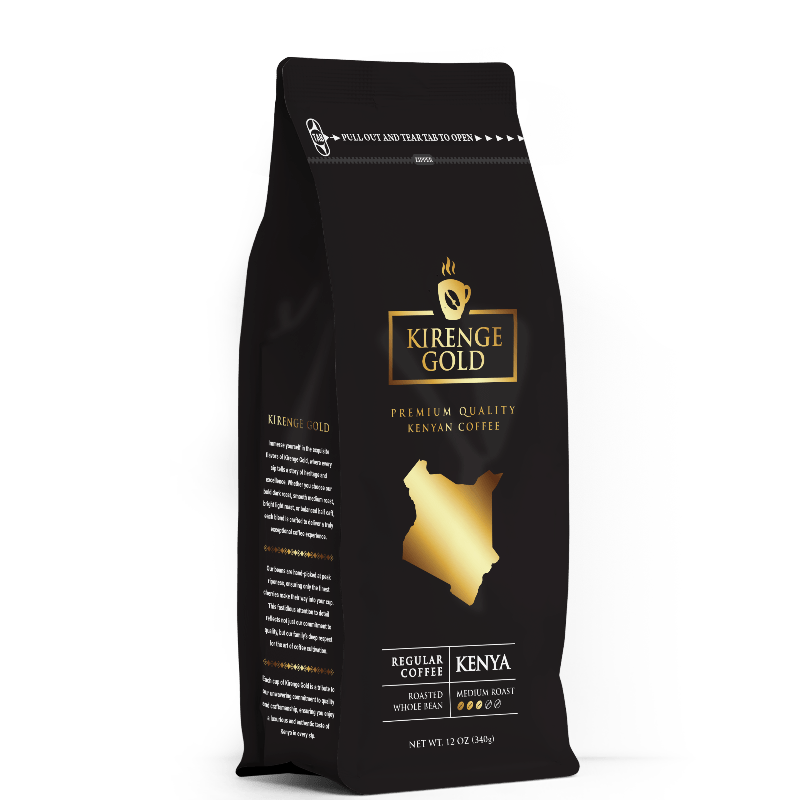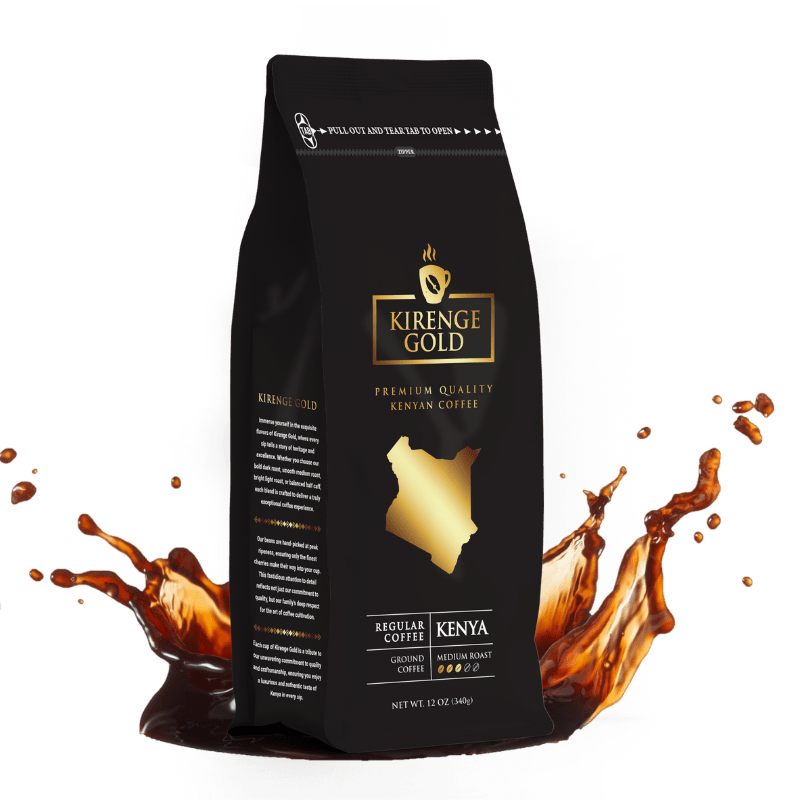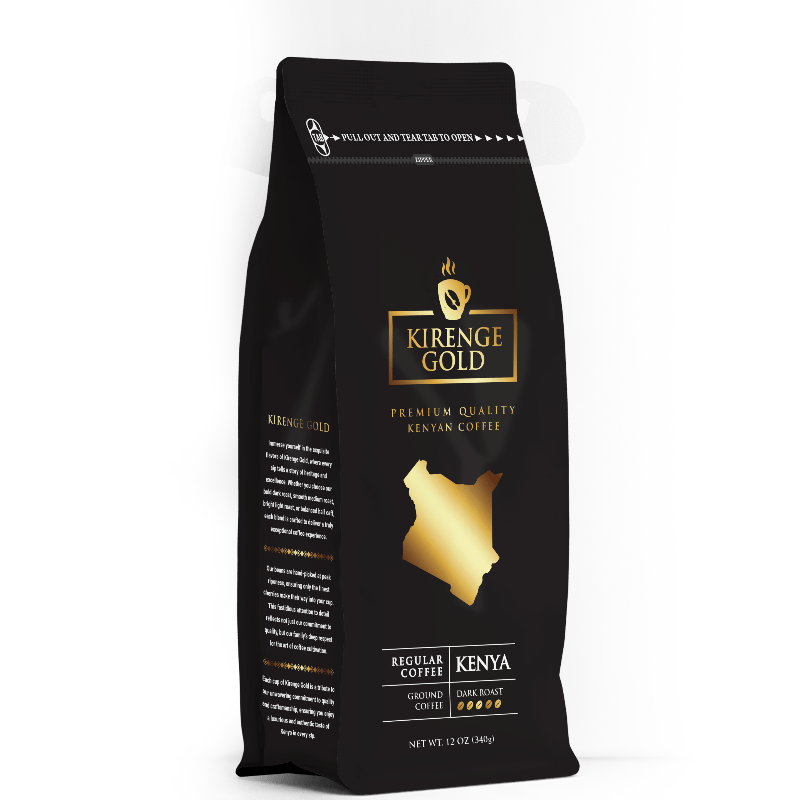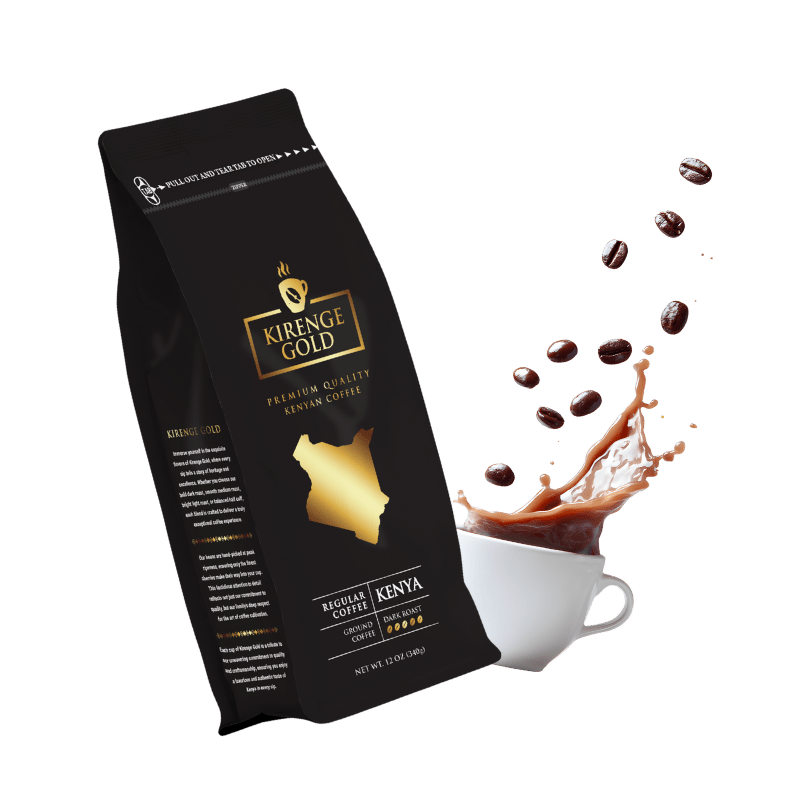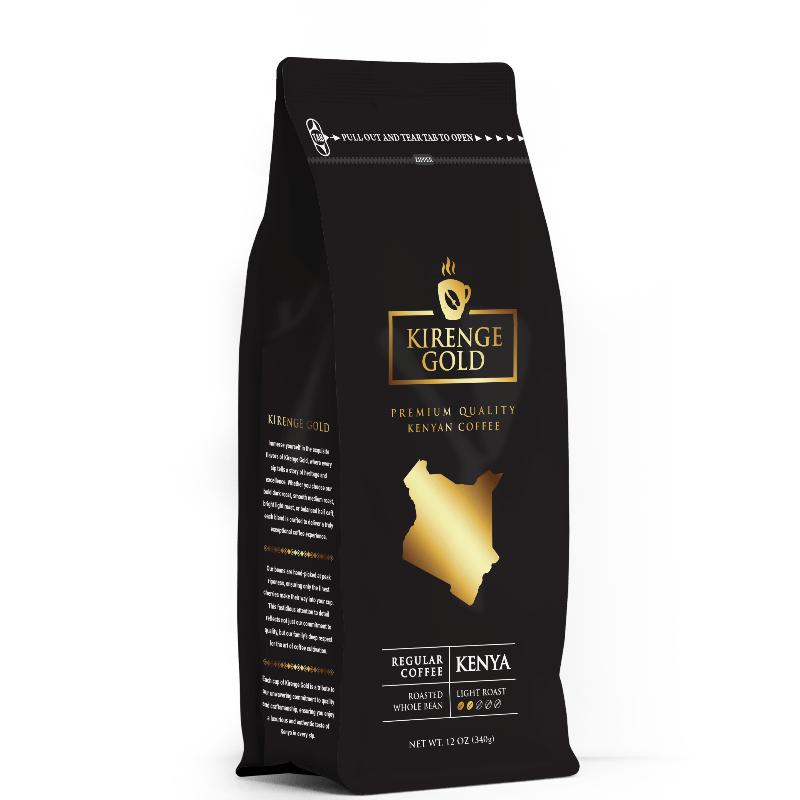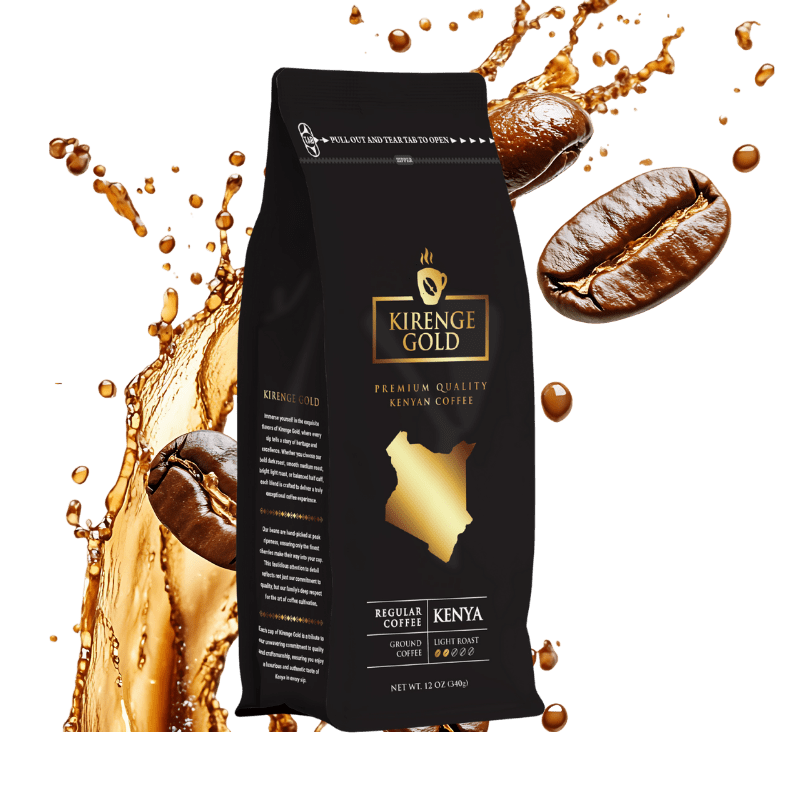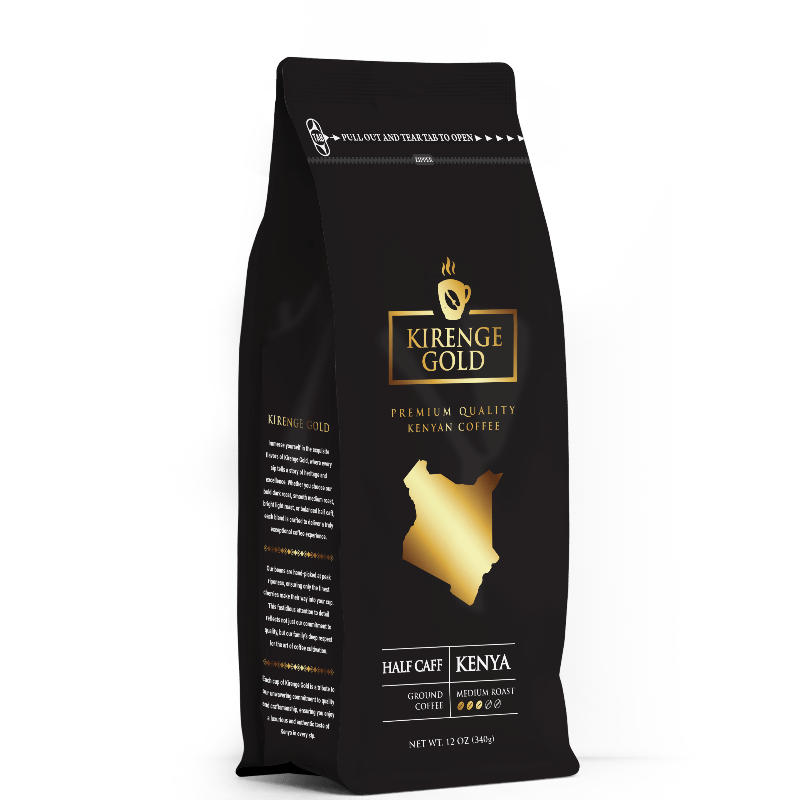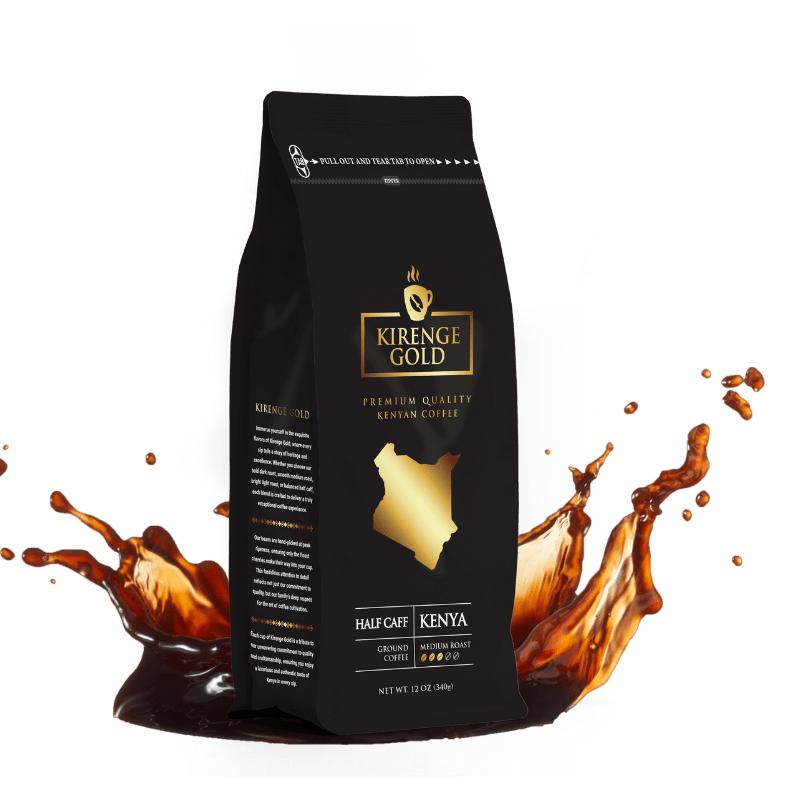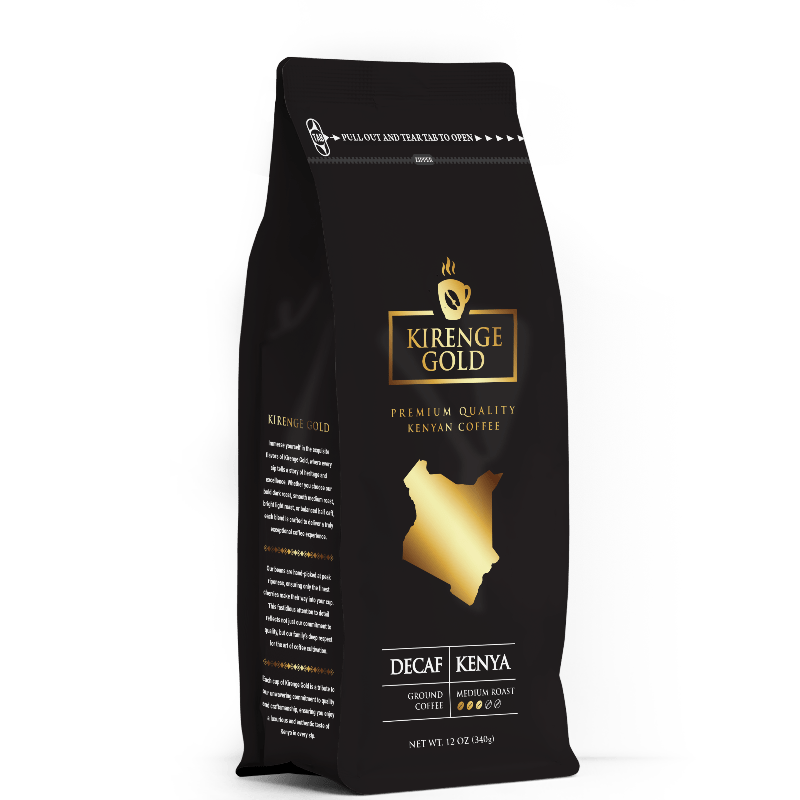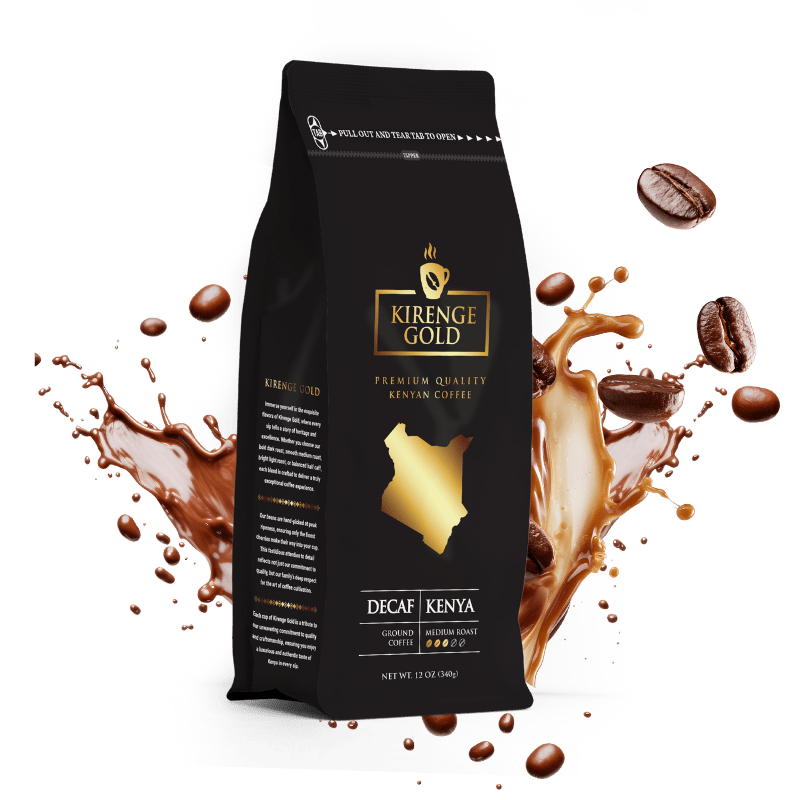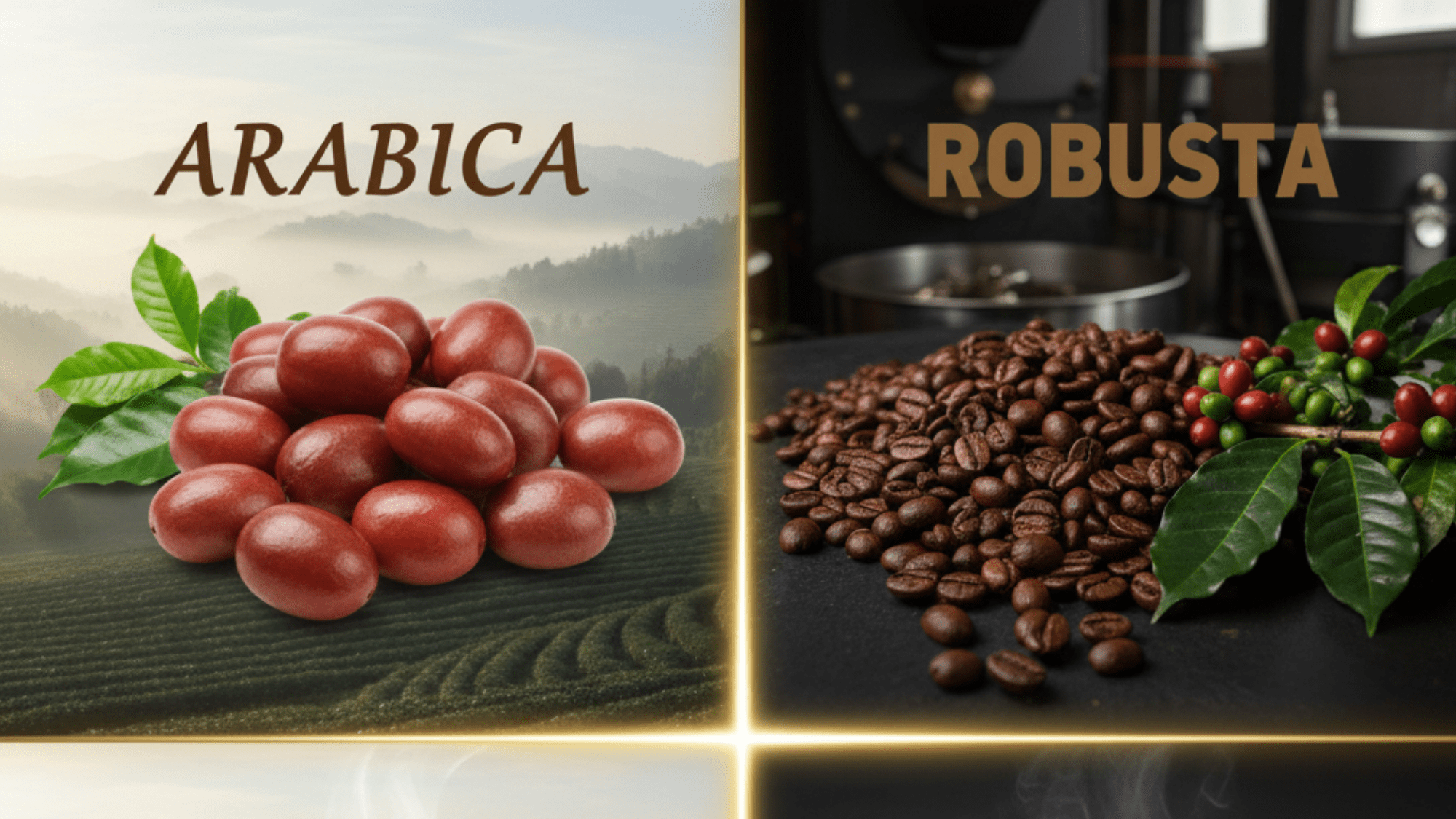
Arabica vs Robusta: The Key Differences Every Coffee Lover Should Know
Walk into any coffee aisle or café, and you’ll notice two main coffee types dominating the shelves: Arabica and Robusta. While both belong to the coffee family, they couldn be more different in taste, quality, and even the way they’re grown. Understanding these differences isn’t just for baristas or coffee experts — it’s for anyone who wants to choose the right cup.
At Kirenge Gold, our mission is to bring you Premium Kenyan Coffee, and that means focusing on Arabica — the world’s most celebrated coffee species. But why Arabica and not Robusta? Let’s dive deep into the distinctions and discover why your next brew matters.

Origins: Two Different Journeys
Arabica Coffee (Coffea Arabica)
Arabica traces its roots to the highlands of Ethiopia, the birthplace of coffee. Today, it thrives in high-altitude regions with rich volcanic soils. Countries like Kenya, Colombia, and Ethiopia are known for producing the best Arabica beans. Arabica accounts for about 60–70% of the world’s coffee production.
Robusta Coffee (Coffea Canephora)
Robusta, on the other hand, originates from Central and Western Africa. It grows at lower altitudes and is far more resilient to pests and diseases. Vietnam and Brazil are the top producers, with Vietnam alone contributing nearly 40% of the world’s Robusta supply, often used in instant coffee and supermarket blends.
Key Insight: Arabica is the bean of choice for premium specialty coffee. Robusta, while cheaper and stronger, is often mass-produced for commercial use.
☕ Flavor Profiles: Smooth Elegance vs Bold Strength
Perhaps the biggest difference lies in flavor.
- Arabica: Known for its smooth, delicate, and complex taste. Depending on origin, it can have fruity, floral, wine-like, or chocolatey notes. Kenyan Arabica is particularly famous for its bright acidity and berry-like sweetness.
- Robusta: Much stronger and more bitter. Described as earthy, woody, or even rubbery, it lacks the nuanced flavors Arabica is loved for.
Coffee connoisseurs often compare Arabica to fine wine — layered, sophisticated, and worth savoring. Robusta, meanwhile, is compared to a strong, no-frills whiskey shot — intense, but not refined.
Caffeine Content: Twice the Kick
- Arabica: Contains around 1.2% caffeine.
- Robusta: Packs nearly 2.2–2.7% caffeine.
This high caffeine not only makes Robusta taste more bitter but also makes it more resilient against pests. For health-conscious drinkers or those sensitive to caffeine, Arabica is the gentler option.
Fun fact: Many people think dark roasts have more caffeine, but in reality, caffeine depends more on the bean type — Arabica vs Robusta — than the roast level.
Price and Availability
Arabica beans are harder to grow. They need specific climates, higher altitudes, and careful harvesting. This makes them more expensive but also more valuable in specialty markets.
Robusta is cheaper to produce because it grows easily in warmer climates and lower altitudes. It’s widely used in instant coffee, supermarket brands, and inexpensive espresso blends.
If you’ve ever wondered why premium bags of Kenyan AA Arabica cost more, it’s because quality and complexity come at a price.
Global Consumption
- Arabica: Dominates specialty cafés, artisan roasters, and premium coffee markets in the US, Europe, and Asia.
- Robusta: Common in mass-market coffee, instant coffee, and in traditional Italian espresso blends for added crema and strength.
A study by the International Coffee Organization shows that specialty coffee consumption (mostly Arabica) is growing faster than commodity-grade Robusta blends, especially among younger consumers who care about origin and sustainability.
Nutritional and Health Differences
- Arabica: Higher in lipids and natural sugars, giving it a smoother taste and more antioxidants. Easier on the stomach for many drinkers.
- Robusta: Higher caffeine, which can aid alertness but also increase acidity and bitterness.
For health-conscious coffee lovers, Arabica (especially Kenyan) is often preferred for its balance between antioxidants and lower caffeine.
Brewing Suitability
- Arabica: Perfect for pour-over, French press, cold brew, and specialty espresso. Its complex flavor notes shine when carefully brewed.
- Robusta: Works best in espresso blends (for crema and body) or instant coffee.
This is why many roasters — including Kirenge Gold — stick to Arabica for premium brews.
Why Kenya Chooses Arabica
Kenya is renowned globally for producing some of the finest Arabica beans. Here’s why:
- Grown at high altitudes (1,500–2,100m) on volcanic soils.
- Hand-picked and wet-processed for clean, vibrant flavors.
- Grading system (AA, AB, PB) ensures only the best beans reach the market.
Kenyan AA is often called the champagne of coffee, thanks to its unique balance of acidity, sweetness, and aroma.
Quick Comparison Table
| Feature | Arabica Coffee | Robusta Coffee |
|---|---|---|
| Flavor | Smooth, fruity, complex | Strong, bitter, earthy |
| Caffeine | ~1.2% | ~2.5% |
| Price | Higher (premium) | Lower (budget-friendly) |
| Altitude | High (1,000–2,000m) | Low (sea level–800m) |
| Popular Use | Specialty & premium coffee | Instant & mass-market |
| Health Benefits | Antioxidants, gentler taste | Strong stimulant, harsher |
FAQs
Q: Is Arabica healthier than Robusta?
Yes. Arabica’s lower caffeine and higher antioxidant content make it easier on the stomach and better suited for daily drinking.
Q: Why is Robusta used in instant coffee?
It’s cheaper, stronger, and provides the bold kick that instant coffee drinkers expect.
Q: Can Robusta ever taste good?
High-quality Robusta exists but is rare. Specialty Robusta farms are experimenting, but Arabica still dominates the premium coffee world.
Q: Why does Kenyan coffee only grow Arabica?
Kenya’s high-altitude volcanic soils are perfect for Arabica, which thrives in cooler climates and delivers exceptional flavor.
Why Arabica Wins
While Robusta has its place in budget coffee and instant blends, Arabica remains the gold standard for taste, aroma, and overall quality. If you’re serious about your cup, Arabica is the way to go — and when it comes to Arabica, few origins match the richness and reputation of Kenya’s AA-grade beans.
That’s why Kirenge Gold is proud to offer Premium Kenyan Arabica Coffee, hand-picked from the highlands of Kiambu and roasted fresh to capture its full flavor.
👉 Shop Premium Kenyan Arabica Coffee today and experience the smooth, complex taste that makes Arabica the king of coffee.
Share

